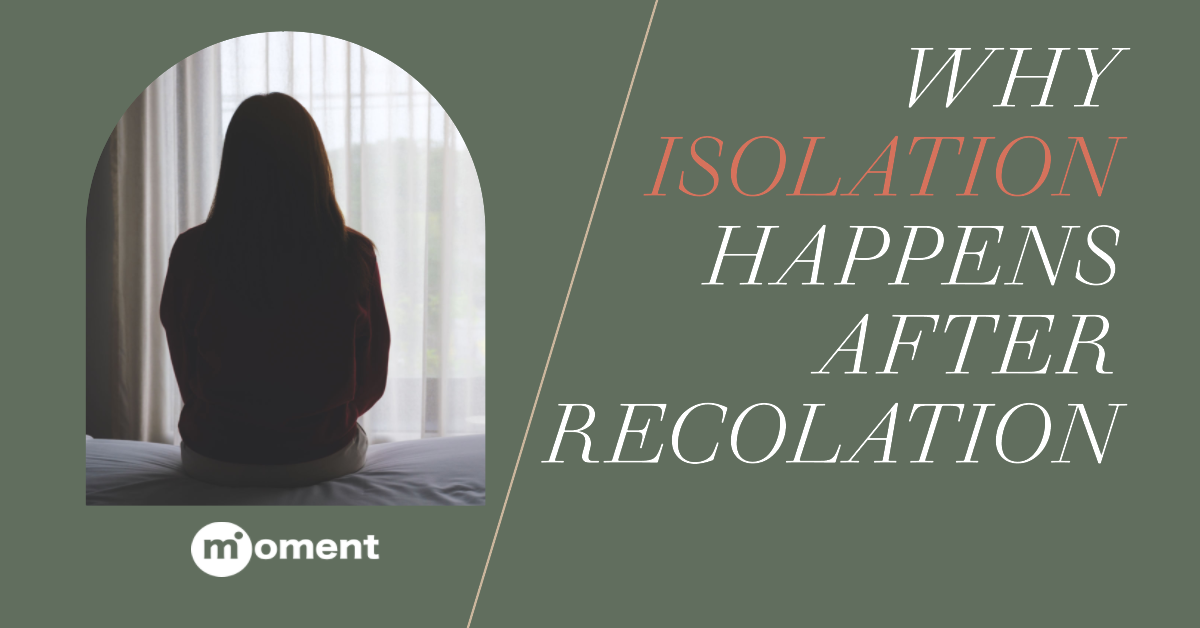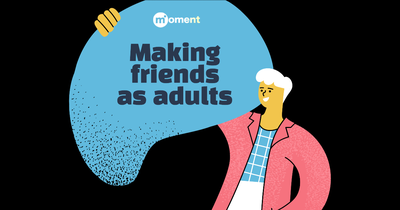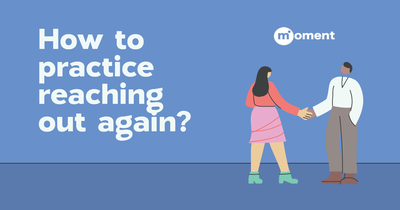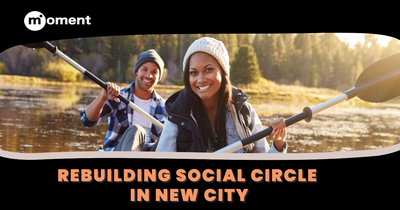Why Social Isolation Happens After Relocation
Loss of people who mirror you after relocation can cause Social Isolation and how you can help yourself and others
When we think about moving to a new place after college or work, we usually imagine a highlight reel: fresh opportunities, vibrant neighborhoods, new faces, and the promise of reinvention. What we rarely anticipate is the silence that settles in once the boxes are unpacked. The messages from old friends slow down. The new streets feel unfamiliar. And suddenly, between all the busyness of starting over, a quiet ache begins to form — one that we don’t often name for what it is: social isolation.
I’ve experienced that ache myself. The strange paradox of feeling lonely even when surrounded by people. The constant tug between wanting to put yourself out there and wanting to retreat because it all feels too foreign, too forced. It made me wonder — why does social isolation happen so often after relocation, even when we’re doing “everything right”?
The Emotional Earthquake of Moving
Relocation isn’t just a change of address — it’s a full-body, full-heart reset. Psychologists sometimes call it a “life transition stressor,” meaning it shakes the foundations of our daily stability: our social networks, routines, and even identity.
Before we move, our connections exist like a soft web holding us in place. We have people who know our coffee order, coworkers who understand our shorthand humor, friends who can sense when something’s off just by our tone. These small, everyday interactions aren’t trivial; they form the scaffolding of belonging.
When we move, that scaffolding disappears overnight. The web that once caught us when life got heavy is suddenly gone — and rebuilding it takes more time and energy than anyone warns you about. You have to follow all the levels of friendships again.
The Invisible Work of Reconnection
It’s easy to assume that relocation will naturally lead to new friendships. After all, we meet people at work, in our building, at the gym. But meeting people isn’t the same as connecting with them.
Research suggests it takes about 50 hours to transition from acquaintance to casual friend, and more than 200 hours to develop a close friendship.¹ When you’re juggling the stress of a new job, unpacking boxes, adjusting to a new culture or time zone, and trying to find a decent coffee shop, who has that kind of time or emotional bandwidth?
This is where the quiet isolation sets in. We crave the depth of old friendships but only have the surface-level energy to maintain new ones. So we scroll, text, and try to convince ourselves that virtual connection is enough — but the truth is, belonging doesn’t thrive on convenience. It grows from proximity, shared moments, and repetition.
The Loss of Familiar Mirrors
Another reason relocation feels isolating is that we lose access to the people who mirror us back to ourselves.
In familiar spaces, our identity is constantly reinforced — we’re the funny one, the reliable one, the ambitious one. People remember our milestones and inside jokes. But in a new environment, those reflections vanish. You become a blank slate, and while that can sound liberating, it often feels disorienting.
Without those mirrors, we can start to question who we are. The isolation isn’t just social; it’s existential. It’s the loneliness of not being seen in the way we’re used to being seen. This is not limited to just moving, even changing workplace in the city can lead to loss of this so said mirror and set in isolation.
Unless the companies culture is inclusive, or they have great buddy system to onboard you maybe pulling people into an app like Moment make sense. The app provides a circle feature specially tailored for workplaces.
Keep in Mind
Relocation or workplace changes can lead you to backfoot and set in isolation. But not to people who actively seek connection. keep in mind, connections can be rebuilt, moment by moment, conversation by conversation.
The loneliness that comes after moving isn’t a flaw in your character — it’s proof that you value connection deeply. That your roots matter. And as you plant them again, in new soil, you’ll find that belonging isn’t about geography. It’s about the quiet courage to stay open long enough for home to find you again. Good luck and hope you download Moment App to welcome someone new to your city and help them find the same belonging in the new city.
¹ Hall, Jeffrey A. (2018). How Many Hours Does It Take to Make a Friend? University of Kansas Study.




